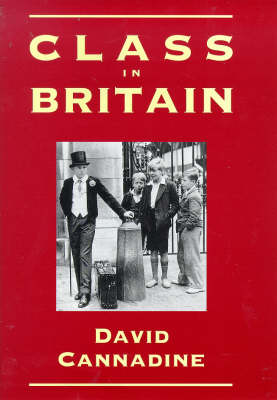George Orwell once described Britain as the most class-ridden society under the sun, and it is still widely believed that British society is obsessed with class, to a greater degree unrivalled by any other country. Yet this British sense of class is generally confused. In this study, David Cannandine sets out to banish this ignorance and shed light on the confusion by offering a sustained history of class in Britain over the last 300 years. This is not a history of class as understood in Marxist terms; as the making of classes, the clash and conflict of classes, and the birth and demise of class. In this post-communist, post-modern world of multiple identities that we inhabit today, this is no longer an appropriate or constructive way to treat of define the subject. Cannadine's concern is to explain how different generations of Briton's across the centuries from the 18th to the 20th have perceived their society, and their place within it. He suggests thta class may best be understood as a shorthand term for three different but abiding ways in which the British have visualized their social worlds and social identities: class as a seamless hierarchy of individual social relations; The book discusses how most commonly the social order has been defined by hierarchy - a great chain of being extending from the humblest of subjects to the monarch on the throne. Even today, Cannandine argues, the belief in a providentially ordered social world, where everyone knows their station, retains an importance often underestimated. British society has also been seen as divided into three, especially by those in the middle, anxious to assert their unique claims of virtue and importance against those above and beneath them. Across the last three centuries, the resonance and appeal of these three different ways of viewing British society has ebbed and flowed, and this text is an account of why this has been the case. In discussing how we see ourselves and how we see the society to which we belong, the author lays particular emphasis on the role of politicians in shaping social identities in a modern democratic world. Part of the book deals with Margaret Thatcher and the significance of her attempt to change the way we look at things, and with John Major, whose vision of a classless society still lingers on in the aftermath of Conservative defeat.
- ISBN10 0300077033
- ISBN13 9780300077032
- Publish Date 10 September 1998
- Publish Status Out of Print
- Out of Print 4 March 2021
- Publish Country US
- Imprint Yale University Press
- Format Hardcover
- Pages 124
- Language English
